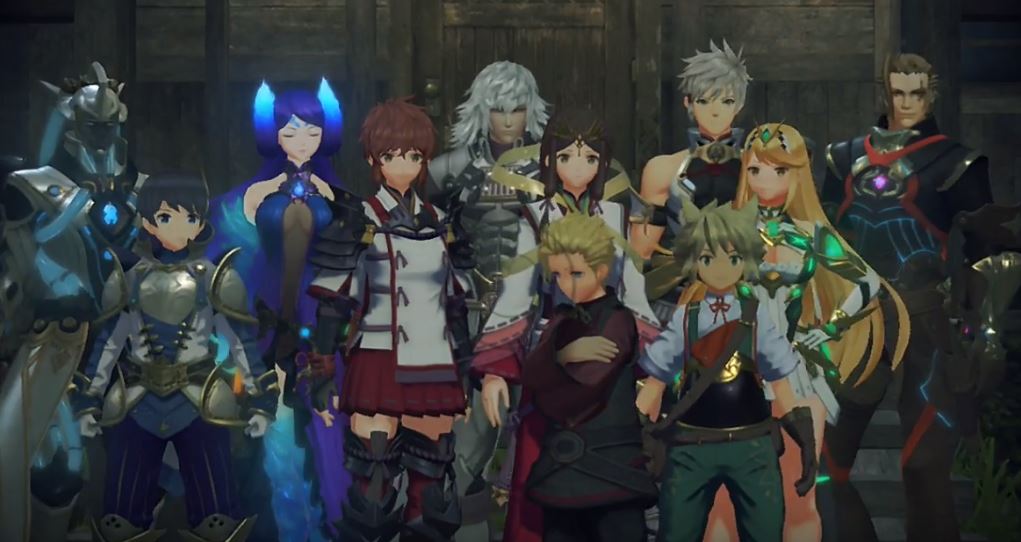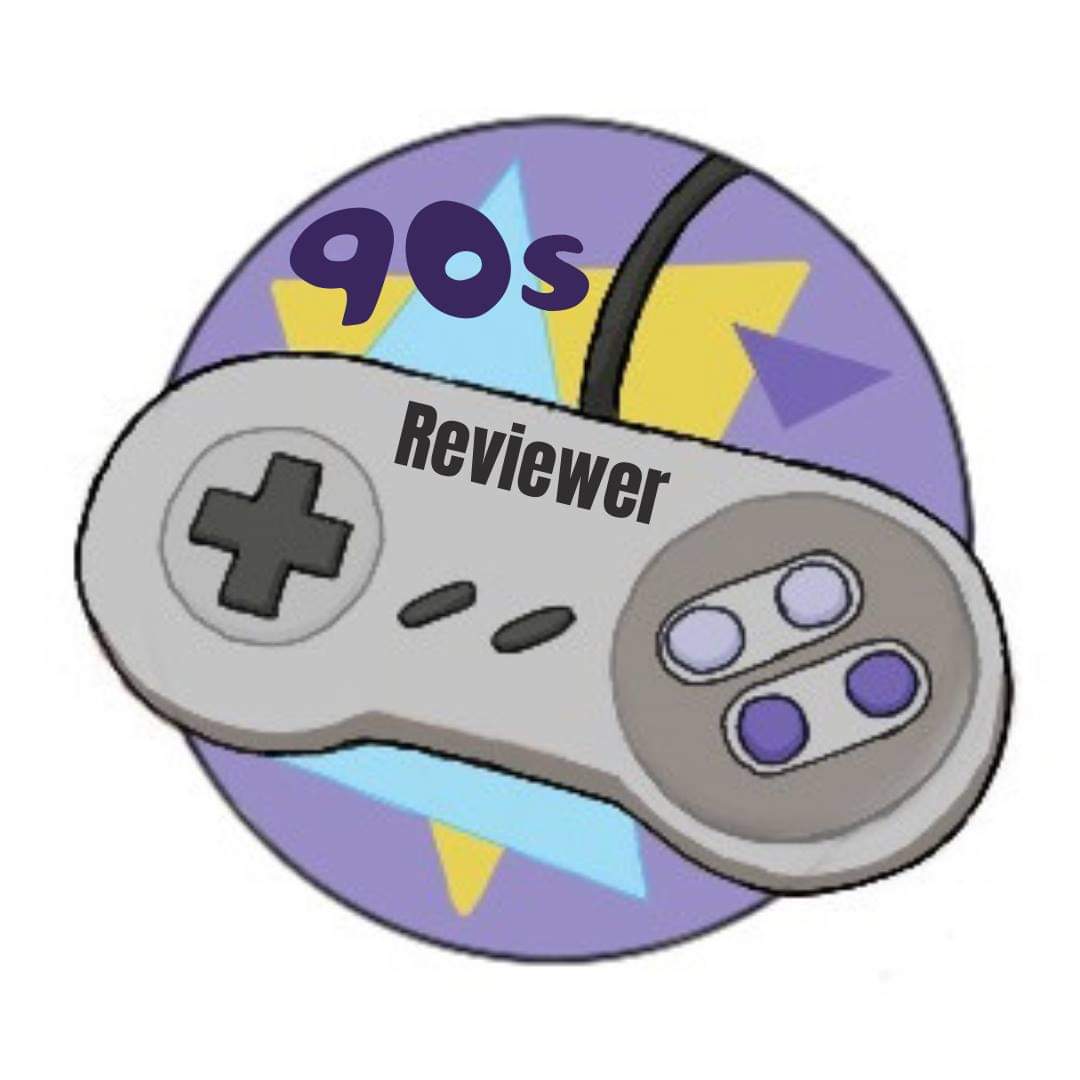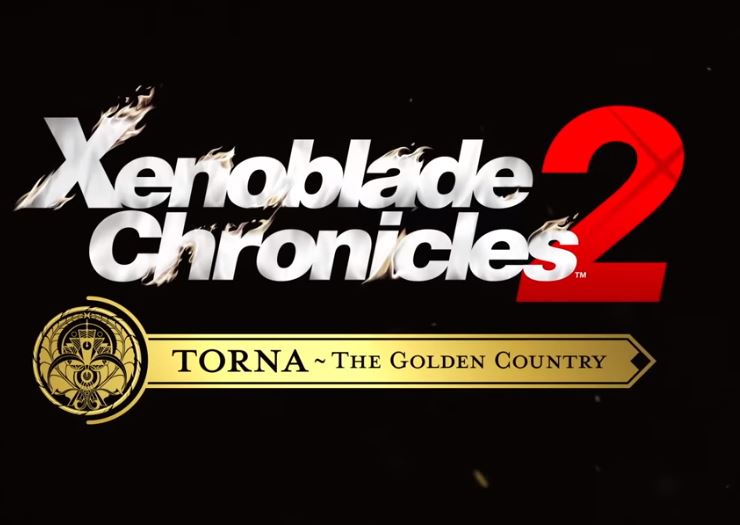Xenoblade Chronicles 2: Torna the Golden Country is technically DLC, but is also available as a stand-alone game. Whether you consider it the newest entry in the series, or an expansion of XC2, it is without a doubt the best playing entry in the Xenoblade series.
500 years before Rex and Pyra journey to Elysium in Xenoblade Chronicles 2, Addam and Mythra set out to stop Malos from ending the world. Rather than follow them as the protagonists, Torna switches things up by focusing on Lora and her Blades Jin and Haze. In most games they would be supporting characters, but their outsider perspective shifts away from the usual heroic journey tropes.
Lora’s a mercenary with a heart of gold. She’s a strong fighter and clever survivor in a land where war is common. Her friendship with Jin is touching. They bonded while she was a child, and he’s been her protector ever since. The game even delves into the bit of jealousy Haze feels over their bond.
None of the trio get a complete character arc, but there’s enough personal moments to really flesh them out as three dimension characters. Lora, Jin and Haze make the game more than an adventure story, though it does manage that well too.

The trio quickly join Addam and Mythra in their fight against Malos, but only after they fight each other over a misunderstanding first. It’s the scene from Avengers were Thor and Iron Man fight before Captain America stops them. The whole concept is tired, but it’s over quickly enough.
Once they’re together, the plot kicks in. Torna being a prequel means we get to experience events only hinted at in Xenoblade Chronicles 2. Thankfully it avoids most of the major pitfalls associated with prequels. The huge time gap means there’s lot of room to expand on characters and we only saw in flashbacks previously. No major plot points from the original story are broken or ignored to fit the prequel.
The only narrative problem with the game is it ends too soon. The action-adventure plot ends at the right time, with a massive battle that lives up to the hype from the main game. Ending the main narrative there makes sense. The problem is the battle doesn’t wrap up Lora and Jin’s story.

Jin plays a massive part in XC2, with Lora tied closely to his motivation even 500 years later. The ending is vague about what happens to Lora and Jin. As the whole game is from their perspective this is disappointing. An extra 5-10 minute cut scene might have filled in that gap.
Not that the ending should sway anybody from playing Torna. The story wraps well enough to be mostly satisfying, and I’ll highlight the characters as a strength once again. Torna provides a wonderful JRPG story with great character moments, and is absolutely worth experiencing even if it doesn’t quite nail the ending.
Speaking of characters, Torna thankfully avoids the problematic sexuality of the main game. Returning character Mythra and Brighid retain their hyper-sexual designs, but leaves the lingering camera shots of their bodies out. They also avoid any sexist jokes this time around. This change makes enjoying the game much easier.

Torna also improves on XC2’s gameplay by refining combat and character management systems to a series best. XC2 required players to amass an army of Blades, with different moves to be swapped around to defeat certain enemies effectively. There was indepth strategy to forming the perfect team, but it was overly complex and involved luck in drawing good blades. Torna improves the game by removing the random element and assigning two blades to each party character.
The limited character selection means each is unique and valuable in their own way, while complimenting the group. You don’t need to find the perfect blade, instead your focus is on using those blades effectively. This streamlined focus means you’ll know their moves inside and out by the game’s end.
Driver combos, blade combos and elemental bursts all return, but are far easier to implement. The requirements to activate combos and create elemental spheres is simpler, and your blades are balanced to help achieve the powerful elemental bursts needed to defeat high level enemies.
Another refinement is with the timing of Arts. Executing a new Art just as the previous one strikes the enemy resulted in added damage in XC2. This feature returns, but is easier to accomplish. Character animations clearly signals the perfect moment to strike next. This wasn’t always the case in the last game.
All of this streamlining could have made the game too easy, but I found myself struggling at times to defeat higher level enemies. You have the tools to defeat the games challenges, and less obstacles to overcome from a system perspective, but you still need to strategize your attacks. Torna isn’t a hard game, but its no cake walk.
Accompanying the great battle system is an absolutely bomb theme. Electro-jazz kicks in with a high energy pulse that never gets old. I’m listening to the battle theme right now, and I’m pretty sure its looped twice and I don’t care. It’s that good. The whole sound track is excellent.
Exploration remains another highlight of the series. Torna is limited to two titans, Gormott and Torna, but it makes the most of them. Gormott returns from XC2, but 500 years younger and undeveloped. It’s a nice mix of familiar and new. Torna is entirely new, providing a nice variety of environments that complement the lush green of Gormott. On either titan there’s always something to do when you crest a hill or turn a corner. Secrets, enemies and beautiful scenery abound.
Okay, so there’s tons to love about Torna the Golden Country. The title out does each previous game in the series in almost every way, but nothing is perfect. I’ve already mentioned the ending being weak, and there’s a game play problem that’s equally as annoying.

Quests are organized into a Community system. People ask you to complete tasks and as you finish them, those characters are added to a tracker for that titan. The more quests you complete, the higher your community ranking becomes. It helps connect you to the community of people on Gormott and Torna by making the community system its own manner of quest.
Community system sounds good so far, and it mostly is, until it stops game progress dead. Not once, but twice, everything screeches to a halt in the main story until the community level is raised. Despite doing tons of side-quests, I ran into this problem and had to grind out less interesting quests just to advance in the main game. Thankfully, even the duller quests are still fun enough that I didn’t once feel like putting the game down.
Side quests are supposed to be optional. Building Community provides the player with rewards and experience points, which should be all the encouragement the player needs to complete the quests. Halting narrative progression to force players into side quest completion is poor design. There’s no strong reason for this happening, it just does. The story tries to explain why you’d stop everything to help the people, but its flimsy.
That’s it, that’s my complaints for Torna. Overwhelmingly the game is absolutely amazing. If you’re hesitant to pick up Xenoblade Chronicles 2 due to some of its content, then move right to Torna the Golden Country. It is everything great about XC2 without the problems, and only a few of its own. In my last review I called XC2 the greatest JRPG on Switch, but Torna is really the best part of the game.
-
Torna the Golden Country
Summary
Pros
Best combat system in the series
Lora, Jin and Haze
The music!
Cons
Vague ending after the climax
Community system level requirements
Buy Torna if Xenoblade Chronicles 2 felt too system heavy

